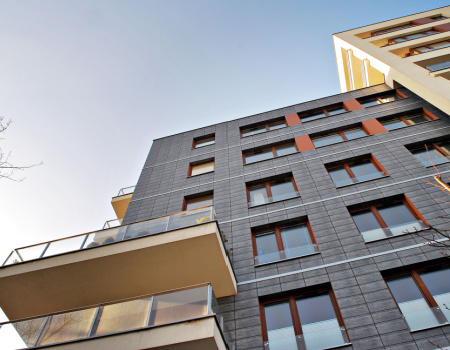Most folks who have not invested in real estate will rarely find themselves thinking about hiring a property manager. While, having a landlord that will repair anything that breaks in a property that you own and live in may sound nice, most of us will just do it ourselves and save money. As homeowners, many of us actually enjoy working on our properties that we live in. This joy will quickly dissipate when someone buys multiple residential properties and then rents them out, however.
In business, it has always been seen as a wise investment to own the building, or buildings that you operate out of. This way, as your business grows, the real estate owned will also hopefully increase in equity.
Now imagine this fellow who is working on his own house, and owns multiple properties for his business, this is where commercial vs residential property management Las Vegas will be a necessary Google search.
Las Vegas property management companies are abundant, and the search results will take some time to sift through, for sure. This is why we have decided to really break down the concrete differences between commercial vs residential property management services.
Tenant Expenses
A residential tenant will generally only have to worry about paying the rent and sometimes a few utilities. These utilities are generally things like water, gas and electric. Depending on the lease agreement, some residential tenants don’t even have to pay any utilities at all.
A tenant in a commercial property normally must handle many more expenses and responsibilities. These extra expenses are normally involved in what is called a Triple-net (NNN) lease. In these commercial lease agreements, the tenant agrees to pay all, or nearly all of the expenses that comes with the property. These expenses include property taxes, the insurance on the building and all of the maintenance that the building may need. These expenses are in addition to the rent and utilities.
24/7 Management Needs and Hours of Operation
Anyone around here who has taken care of residential property management Las Vegas, knows that those calls in the middle of the night about a flood or some other emergencies are one of the biggest pains in the business. You will literally have to crawl out of bed to take care of the issue to ensure the safety and comfort of your tenants. Failing to do so could result in legal consequences.
In a commercial property, the building is normally closed and vacant at night. This means that a commercial property manager doesn’t need to worry about those middle of the night calls. This means that the manager can generally clock out after business hours.
Leases and Evictions
The type and nature of the lease agreements are very different between residential and commercial properties. In a residential lease, the only agreements that need to be covered involve things like lengths, renewals, pets and late rent. Commercial leases are much more complex and contain a greater number of variables that are sometimes geared to the nature of the business that is operating in the building.
When it comes to a commercial property, the eviction process is normally much easier that an residential eviction. The reason for this is because if you are evicting someone who is living in the property and the courts are much less quick to grant the eviction. Granting a residential eviction normally means the tenants are then homeless. This is not the case in a commercial eviction, and therefore they are much easier to get.
Risks
The real estate industry has always been known as coming with its own set or risks. If you have invested in residential property, there is always the risk of fire, natural disasters like earthquakes and such that could turn your investment right on its head.
Commercial properties run all these risks with a much greater chance of them happening. There are also even more risks that a residential property doesn’t face such as graffiti and people getting stuck by cars in the parking lots. There are also issues with slip and fall accidents that need to be addressed.




